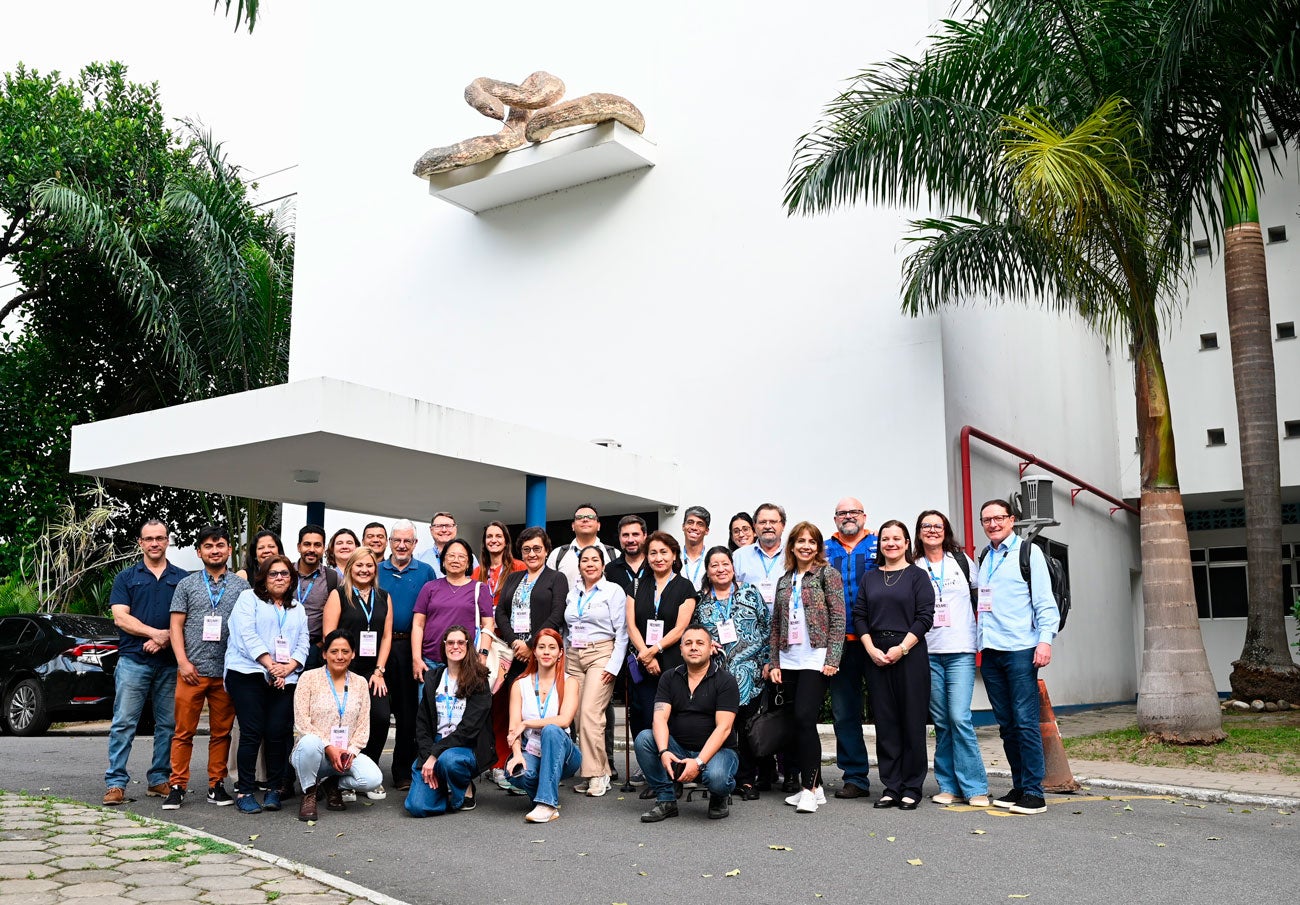
Rio de Janeiro, May 15, 2025 (PANAFTOSA/VPH-PAHO/WHO) – Envenomations caused by bites and stings from venomous animals represent a serious public health problem in Latin America. Beyond the deaths and health impacts, the sequelae and disabilities experienced by survivors have profound social and economic consequences, particularly by limiting the work capacity of those affected.
In the Region of the Americas, more than 57,000 snakebite envenomations occur each year, and only in Brazil and Mexico, approximately 120,000 and 300,000 cases of scorpion stings are reported, respectively.
With the aim of strengthening the regional response, the 2nd in-person Ordinary Meeting of the Network of Public Antivenom Manufacturing Laboratories (RELAPA), held from May 13 to 15 in Rio de Janeiro, Brazil, presented advances, achievements, and challenges, along with concrete proposals to ensure the production of safe and effective antivenoms, as well as their timely availability throughout the region.
During the meeting, key opportunities for technical cooperation within the framework of the Network were discussed, along with strategies to strengthen RELAPA, with a view to achieving the global goal established by WHO Member States to reduce by 50% the mortality and long-term effects caused by snakebite envenomations by the year 2030.
RELAPA marks seven years since its establishment. It was created in 2018 under the coordination of PANAFTOSA/VPH-PAHO/WHO, with the aim of promoting scientific exchange and technical cooperation among public antivenom-producing laboratories. Since then, a variety of activities and initiatives have been developed, including South-South cooperation among members and the organization of periodic technical seminars to foster the exchange of experiences and create spaces for dialogue among its members.
The Network's purpose is to expand the availability and accessibility of safe and effective antivenoms, including in countries that do not have their own national manufacturing laboratories or where production by a single laboratory is not sufficient to meet national demand.
Currently, eight countries in the Region (Argentina, Bolivia, Brazil, Colombia, Costa Rica, Ecuador, Peru, and Venezuela) have 12 public laboratories that produce antivenoms against the venom of various poisonous species such as snakes, scorpions, spiders, and caterpillars.
The meeting was also attended by regional experts from the Strategic Fund (SF), the Department of Innovation, Access to Medicines and Health Technologies (IMT), the Regional Platform for Innovation and Production (RP), the Special Program of the Regional Platform for Innovation and Production (RP), and the Department of Communicable Diseases and Environmental Determinants of Health (CDE) of PAHO/WHO, along with the National Secretariat of Science, Technology and Innovation (SENACYT) of Panama.
As part of the activities, participants carried out a technical visit to the two units of the Vital Brazil Institute, which is under the Health Secretariat of the State of Rio de Janeiro. The visit included a stop at the serpentarium located in Xerém, where venomous animals used in the production of antivenoms are kept, and at the Institute's administrative and laboratory headquarters in Niterói, where research, production, and quality control of immunobiologicals are conducted.
At the regional meeting, a proposal was presented for the inclusion of antivenoms in the Strategic Fund, along with the necessary requirements for manufacturing laboratories to supply these products to the Region. In addition, the current situation of public antivenom-manufacturing laboratories in Latin America was analyzed, and the results will support PAHO in mapping the laboratories’ potential.
The meeting, coordinated by PANAFTOSA, was supported by the Strategic Fund and the Department of Innovation, Access to Medicines and Health Technologies (IMT) of PAHO/WHO, the Wellcome Trust project, and the Vital Brazil Institute.





